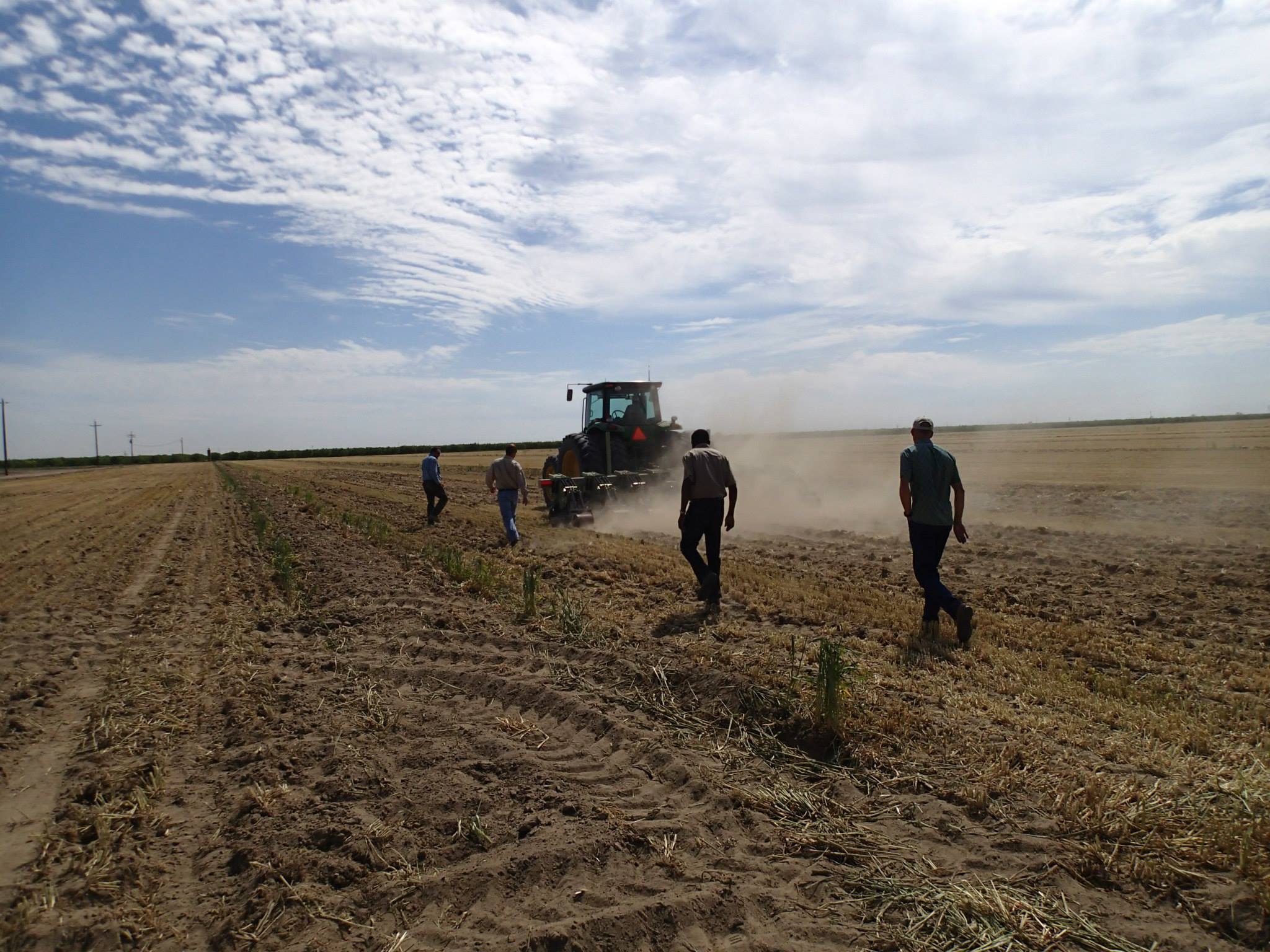
Sustainable Conservation’s Modesto team recently assisted a Central Valley farmer in implementing a sustainable farming practice known as “conservation tillage.” This method of low-impact cultivation reduces the number of tractor passes needed to prepare fields for planting, dramatically cutting farming-related dust and diesel pollution.
Conventional farming techniques cause significant soil disturbances that increase dust pollution and diesel emissions contributing to the Central Valley’s poor air quality. In fact, the American Lung Association’s recent “State of the Air” report ranks areas of the Central Valley as having some of the poorest air quality in the nation. Central Valley residents — especially children and the elderly — suffer from a variety of respiratory problems due to air pollution, with at least 10% of the population afflicted with chronic breathing disorders.
Luckily, conservation tillage has helped farmers reduce their dust and diesel emissions by up to 70% and 50%, respectively — while also saving them millions of dollars in fuel, labor and maintenance costs. Conservation tillage not only cuts air pollution, but also benefits farmers’ bottom lines and local farm economies, while helping communities throughout the state breathe easier.
Learn more about our work with clean-air farming here.
